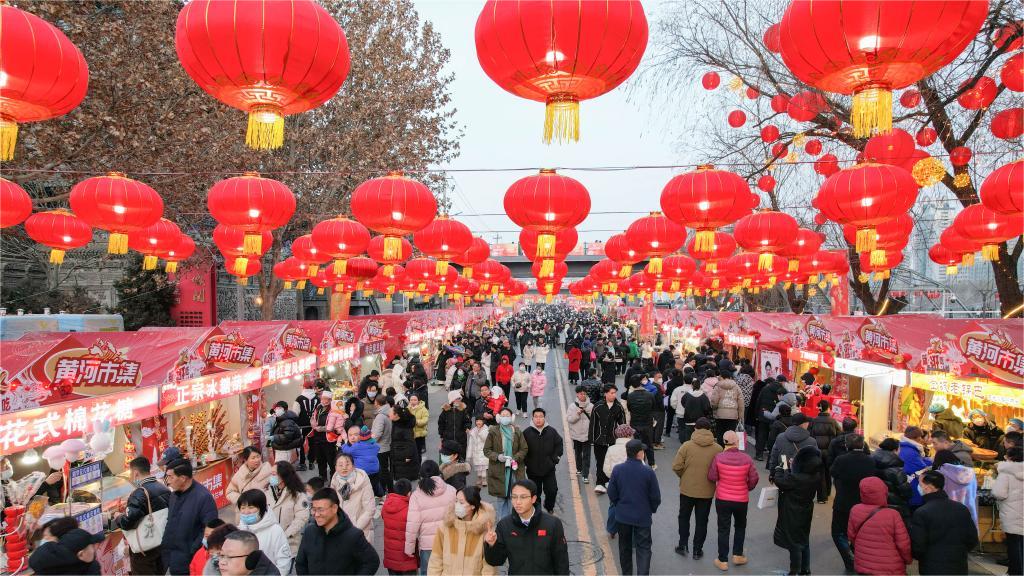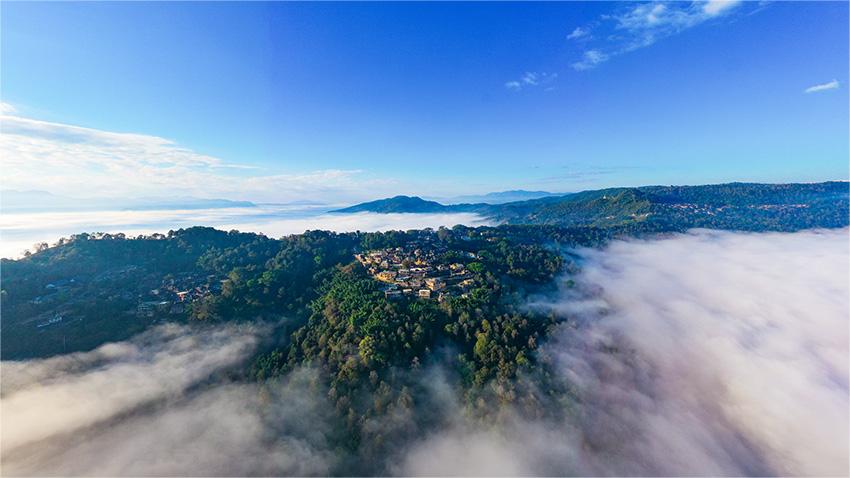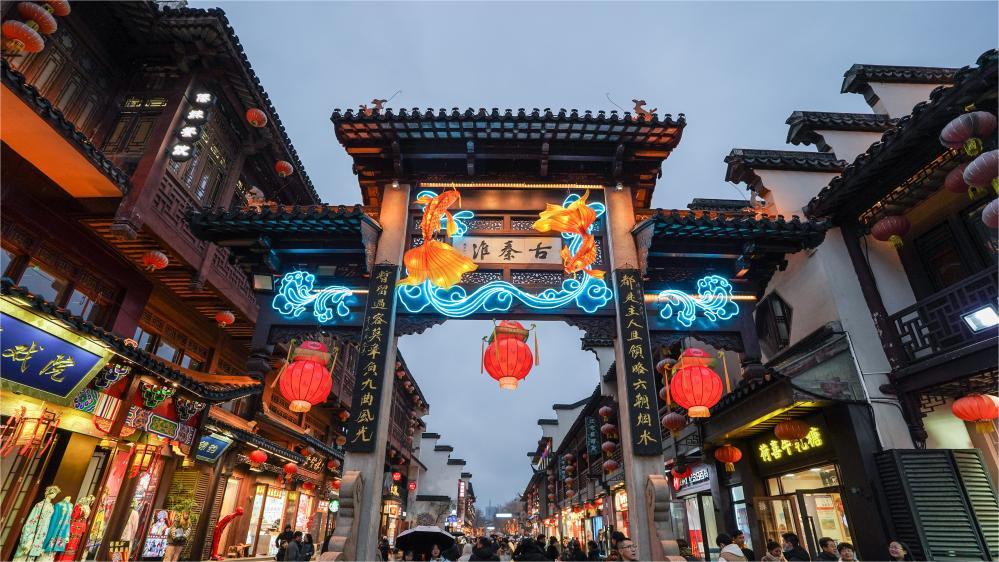Ensuring care-free NEV rides during Spring Festival travel rush
SHIJIAZHUANG, Feb. 16 (Xinhua) -- With an increasing number of new energy vehicles (NEVs) hitting the roads during the Spring Festival travel rush, China has sprung into action to ensure a care-free ride for NEV owners.
The Spring Festival, which fell on Feb. 10 this year, is China's biggest traditional festival. This year's Spring Festival travel rush started on Jan. 26 and will end on March 5.
In the Dingzhou expressway service zone in north China's Hebei Province, personnel from the State Grid Baoding Power Supply Company are examining the temporary charging poles.
From Feb. 9 to Feb. 15, this busy NEV charging station recorded an average charging volume of 5,400 kWh per day, marking a rise of nearly 85 percent from the same period last year.
Anticipating a surge of return traffic as the Spring Festival holiday draws to an end, State Grid Baoding Power Supply Company installed two more 120-kW chargers in the Dingzhou service zone at the side of the expressway leading to Beijing.
"We have placed mobile charging pods on stand-by and increased charging spaces at high-demand electric vehicle charging stations along expressways, and we have also prepared sufficient charging cards for emergency use by drivers in need in order to reduce the queuing time for NEV owners," said Guo Zhanwu, head of State Grid Hebei Electric Vehicle Service Company.
To guarantee access to NEV charging during the Spring Festival travel rush, east China's Jiangsu Province has increased the number of chargers installed at expressway service zones across the province to 1,690, a surge of 96 percent year on year.
In addition, for the first time, these charging facilities have all been supplied with green electricity, namely electricity converted primarily from solar energy and wind power. The supply of green electricity is sufficient to charge at least 125,000 NEVs.
Drivers of NEVs who used charging services within Jiangsu Province during the Spring Festival period received a text message expressing gratitude for adopting "green travel." One message reads: "You have charged 42.1 kWh of green electricity, equivalent to saving 36.7 kg of CO2."
In east China's Anhui Province, State Grid Anqing Power Supply Company had expanded the capacity of 19 expressway charging stations in its service region by the end of last year, doubling the number of charging spaces to eight in each service zone, and adding two mobile charging robots at a high-demand service zone.
Ensuring care-free NEV journeys means providing easy access to charging infrastructure not only throughout the journey, but also on arrival at the traveler's hometown, be it in a big city or a small village.
"We came back for the Spring Festival reunion, and I find it astonishing that there are more and more charging stations, even in the county," said Zheng Xiaoning, a villager from Tiantangzhai Township, Jinzhai County in the city of Lu'an, Anhui Province.
Jinzhai County boasts 208 charging poles across 36 different sites. Drivers like Zheng can easily find the closest one using a mobile phone app.
Data from the China Association of Automobile Manufacturers shows that in 2023, the production and sales of NEVs in China exceeded 9.58 million and 9.49 million units, respectively, ranking first globally for nine consecutive years.
The complete charging infrastructure also injects strong impetus into China's NEV industry. Data shows that in 2023, more than 3.38 million new units of charging infrastructure were built in China, which means that one was completed every 9.31 seconds, on average. By the end of last year, there were more than 8.59 million units of charging infrastructure in China, up 65 percent year on year.
Photos
Related Stories
- Over 2.3 bln passenger trips made in China's Spring Festival holiday: authorities
- China's NEV exports up 27.1 pct in January 2024: association
- China ramps up efforts to further boost NEV trade, cooperation
- Intelligent factory in east China to meet users' needs for personalized ordering of NEVs
- Solidarity, resilience shine on road home for Spring Festival
Copyright © 2024 People's Daily Online. All Rights Reserved.









